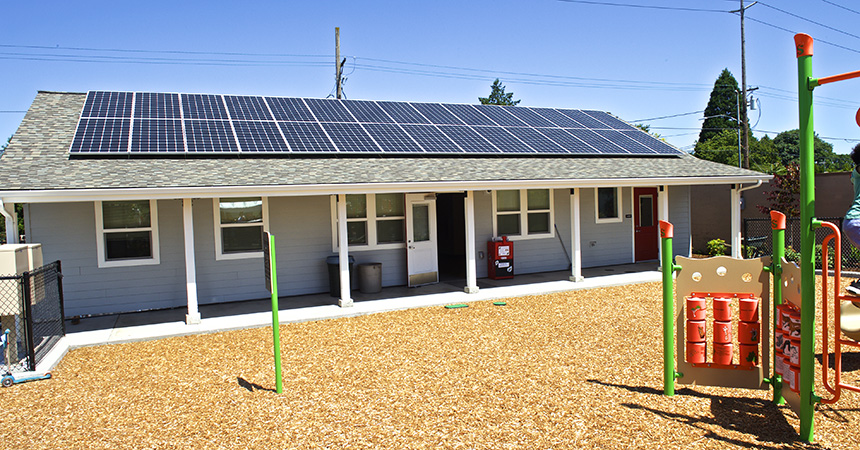
Community-based organizations across the state are hard at work developing new ways to help low-and moderate-income communities benefit from solar energy. These communities often face barriers to install solar, such as limited access to financial resources, high up-front costs and living in a rented home or apartment.
In 2019, Energy Trust awarded $81,600 in solar innovation grants to community-based organizations to help them build capacity to develop community-centric program models that address these limitations and make solar technology accessible.
Already four of the eight organizations that received grants have made significant progress on their projects, while several of the remaining recipients will progress early in 2020 following the launch of Oregon’s Community Solar Program.
- NeighborWorks Umpqua, a nonprofit housing provider in Southern Oregon, plans to install a solar system on the roof of a community building at a manufactured home park that it owns and distribute the financial benefit to its residents. It has already assessed the site to determine its suitability for solar and begun construction on the installation.
- In Eastern Oregon, Wallowa Resources aims to install rooftop solar on an affordable multifamily building. The organization has teamed up with a property management company to secure additional funding for their project through a state grant, completed design work and chosen an installer.
- Meanwhile, Portland-based organization Verde is using its grant toward developing workshops that will help community members understand the technical and financial aspects of a community solar project and how to participate in those projects. They’ve now completed the first of six capacity-building workshops held in Spanish.
- Seeds for the Sol, an organization in Corvallis that helps address financial barriers to residential solar, is finalizing its project plan to install solar on homes built by Habitat for Humanity. The group has expanded the expected number of participating homes from 10 to 20.
Other organizations advancing their projects this year are African American Alliance for Homeownership, Mid-Columbia Economic Development District, Solar for All and Sustainable Northwest.
The results of these innovative projects won’t be limited to the communities they’re being developed in. The models created by these organizations may be replicated and leveraged by others in the future to expand the benefits of solar across Oregon. Energy Trust will continue to follow the journey of each grant recipient to help them reach milestones—and eventually use these learnings to create new pathways to bring solar technology within reach for low- and moderate-income customers.
